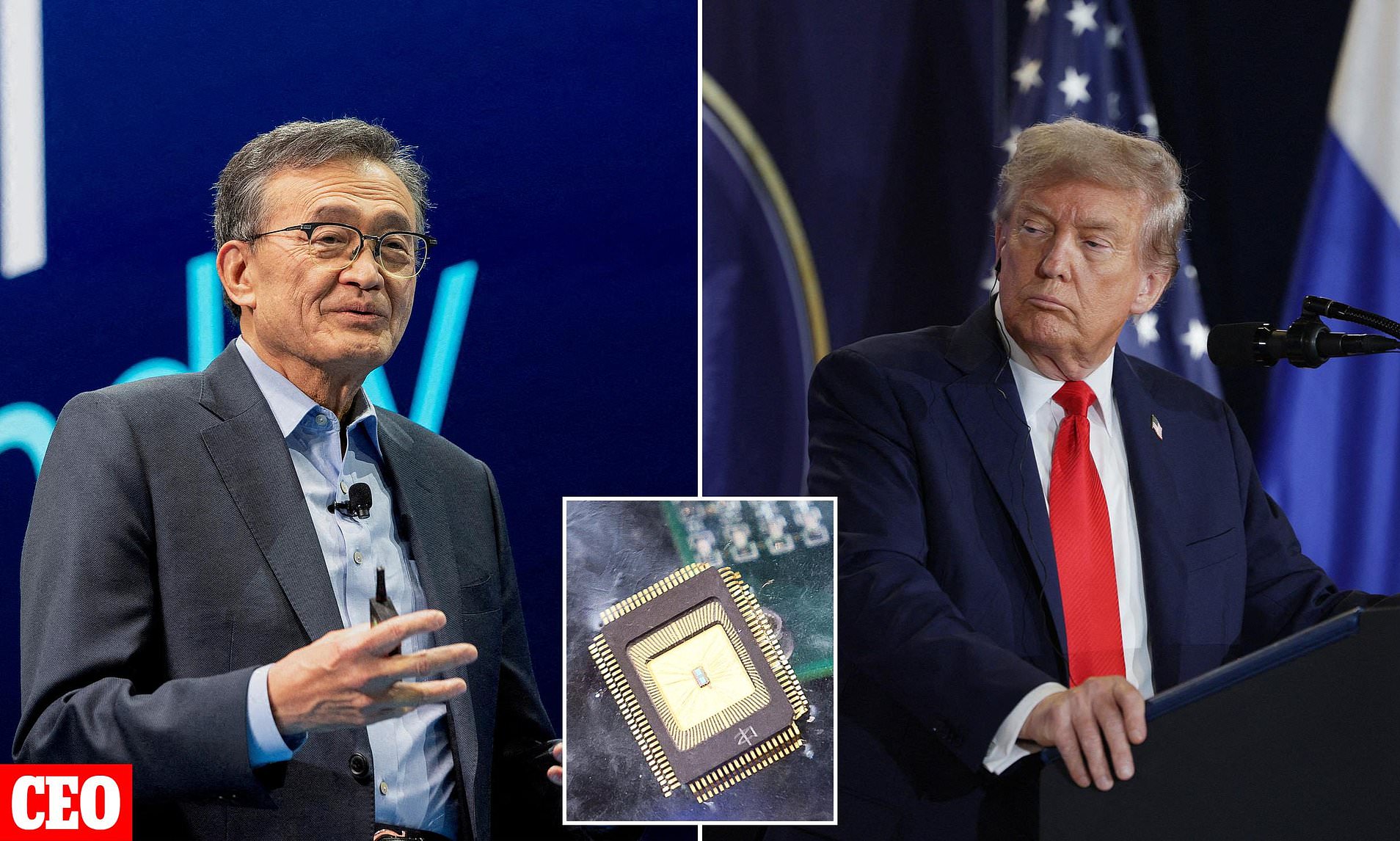Trump Unveils 'Manhattan Project' as Top U.S. Company Faces Nationalization

The Strategic Shift in US Semiconductor Policy
The Trump administration has initiated a bold strategy that some compare to the historic Manhattan Project, with reports suggesting that one of America's leading chipmakers might be partially nationalized. This move highlights the growing importance of semiconductors in the global technological and military landscape.
Intel Corporation, a key player in semiconductor manufacturing, is reportedly engaging in discussions with the Trump administration regarding a potential government stake in the company. This development underscores the critical role that semiconductors play in shaping the future of artificial intelligence, defense systems, and economic stability.
Dave Blundin, an AI computer scientist from MIT, likened the situation to the Manhattan Project or the buildup to World War II, emphasizing its significance as much as the space race or nuclear arms race. He argued that this moment is even more crucial, given the stakes involved in maintaining technological supremacy over China.
Nationalization as a National Priority
The idea of nationalizing Intel stems from the need for the United States to reduce its reliance on foreign fabrication plants (fabs), particularly those in Taiwan, which controls over 60% of the global market. By securing domestic production capabilities, the U.S. aims to bolster its position in the AI and tech arms race.
While the talks are ongoing and details remain unclear, it is reported that the U.S. government would fund its stake in the company. However, officials have cautioned that these discussions do not guarantee a definitive deal, as negotiations could still end without an agreement.
Experts on Peter Diamandis' podcast Moonshots have drawn parallels between this initiative and the 'Manhattan Project,' describing it as a form of 'national survival strategy.' The rationale behind this approach is rooted in the belief that protecting Taiwan is essential due to its control over critical fab facilities. If the U.S. were to establish its own manufacturing base, the strategic rationale for defending Taiwan might shift significantly.
Concerns and Controversies
Critics argue that the push for nationalization could place the entire industry on a war footing, mobilizing resources for a conflict where the battleground is supply chains and chip fabs. This perspective raises concerns about the long-term implications of such a strategy.
Intel, while declining to comment on the discussions with the Trump administration, reiterated its commitment to supporting President Trump's efforts to strengthen U.S. technology and manufacturing leadership. The company emphasized that it would not engage in speculation or rumors surrounding the talks.
White House spokesman Kush Desai advised that discussions about hypothetical deals should be viewed as speculation until officially announced by the administration. This caution reflects the sensitivity of the situation and the potential impact on international relations.
Recent Developments and Implications
The recent agreement between two AI companies and the U.S. government has further complicated the landscape. Nvidia and Advanced Micro Devices (AMD) have entered into an unprecedented arrangement with the White House, agreeing to hand over 15% of their chip sales revenue in China in exchange for export licenses. This deal, reported by the Financial Times, has sparked debate among experts.
Blundin described the short-term benefits as positive but warned of potential long-term risks. He suggested that while the deal could generate significant revenue for the U.S., it may also set a dangerous precedent. The New York Times reported that the deal could bring in over $2 billion for the government, though the exact use of funds remains undisclosed.
In a related move, Trump declared that he would impose a 100% tariff on semiconductor imports unless they are manufactured in the U.S. This decision has drawn criticism from experts who warn that it could harm U.S.-China relations and lead to retaliatory measures.
A Delicate Balance
The sale of microchips to China has been met with skepticism, with many viewing it as a threat to national security and a move against American interests. Critics argue that such agreements could undermine the U.S. position in the global tech race and embolden China to seek greater concessions.
As the U.S. navigates these complex decisions, the balance between economic interests, national security, and international relations remains a critical challenge. The path forward will require careful consideration of the long-term implications of these strategic moves.

Comments
Post a Comment